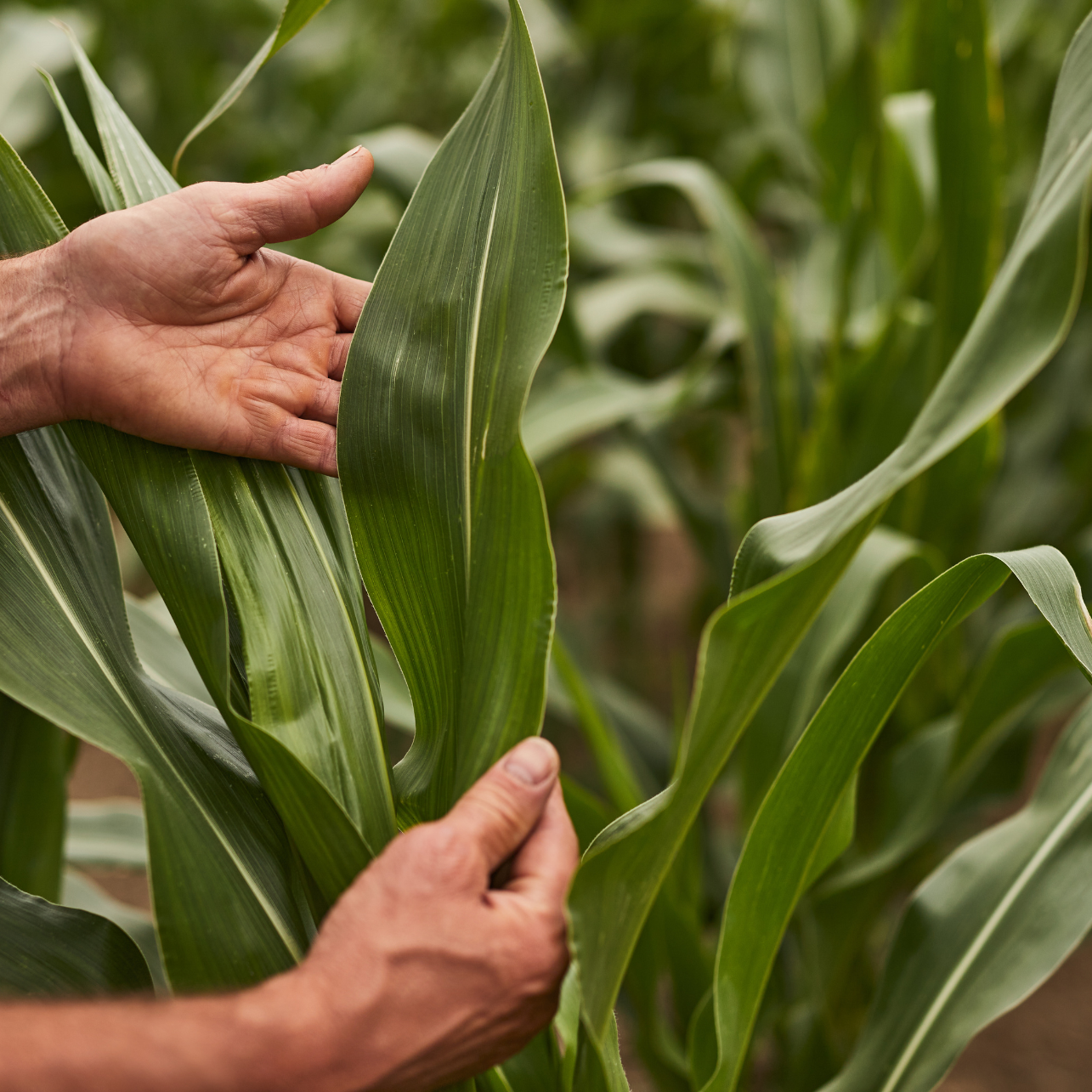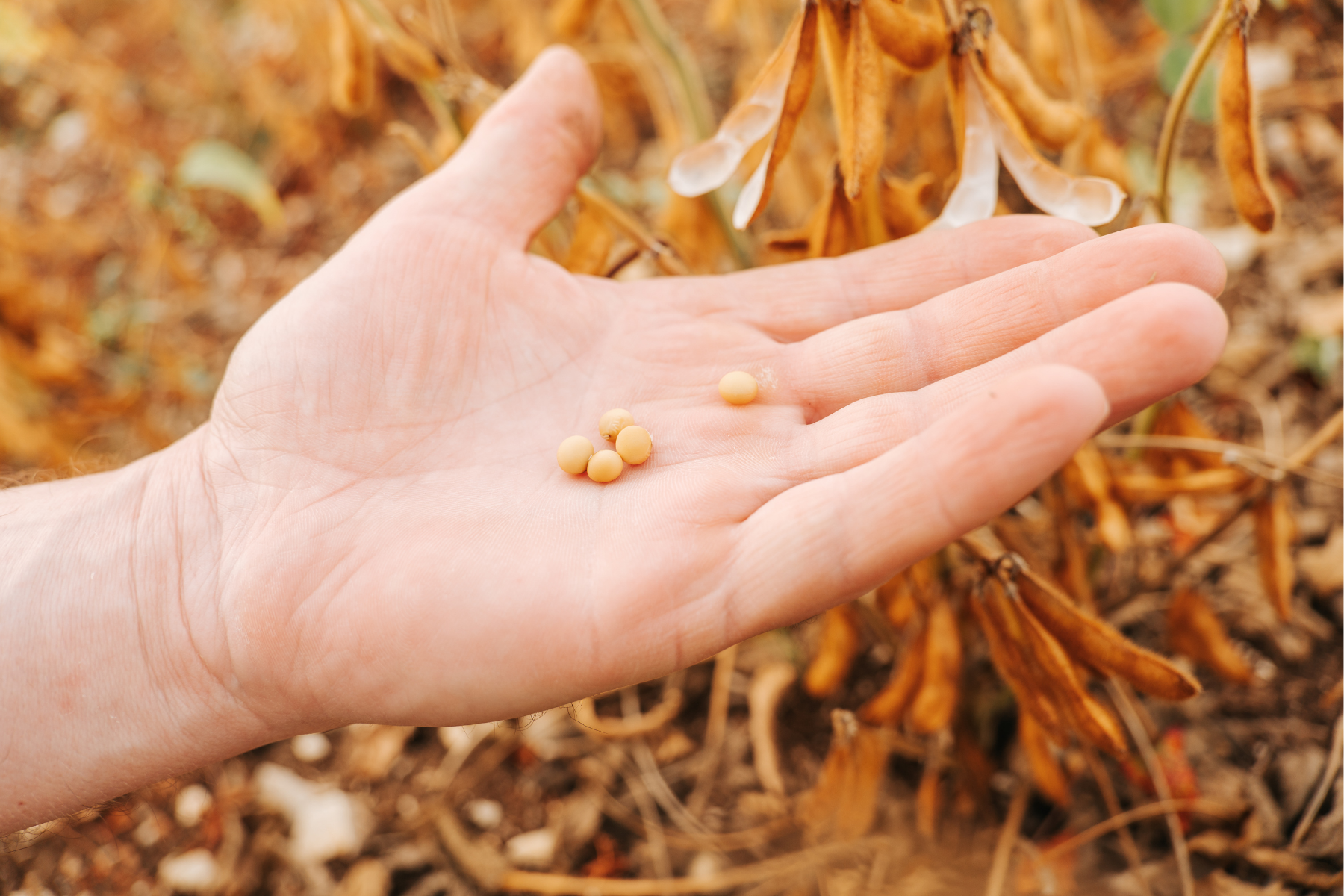While soil testing provides valuable information about the nutrient availability in the soil, tissue testing offers a direct insight into the actual nutrient uptake by your plants.
Here are five reasons to incorporate tissue testing into your crop management practices.
1. Accurate Diagnosis of Nutrient Deficiencies
Identifying Hidden Hunger: Tissue testing allows for the precise detection of nutrient deficiencies before visible symptoms appear. Crops might experience “hidden hunger,” where they lack sufficient nutrients but don’t show obvious signs. By analyzing the nutrient content of plant tissues, you can detect these deficiencies early and take corrective measures to prevent yield losses.
Targeted Interventions: Knowing the specific nutrients that are deficient enables you to apply targeted fertilizers, ensuring that your crops receive the necessary nutrients. This precision helps avoid the over-application of fertilizers, which can be costly and environmentally harmful.
2. Optimization of Fertilizer Use
Efficient Fertilization: Tissue testing helps you fine-tune your fertilization program based on the actual nutrient needs of your crops. This efficiency ensures that you are not wasting resources on unnecessary fertilizers and reduces the risk of nutrient runoff into water bodies, promoting environmental sustainability.
Cost Savings: By applying only the required nutrients in the right amounts, you can significantly reduce input costs. Tissue testing helps you avoid the guesswork and make informed decisions that enhance the cost-effectiveness of your fertilization strategy.
3. Monitoring Crop Health Throughout the Growing Season
Continuous Assessment: Tissue testing provides a snapshot of your crop’s nutrient status at different growth stages. Regular testing throughout the growing season allows you to monitor nutrient uptake and make timely adjustments to your fertilization program. This proactive approach ensures that your crops have optimal nutrient levels for each stage of development.
Adaptability to Changing Conditions: Environmental factors, such as weather conditions and soil moisture levels, can influence nutrient availability and uptake. Tissue testing helps you adapt to these changing conditions by providing real-time data on your crop’s nutrient status, enabling you to respond promptly to any deficiencies or imbalances.
4. Enhancing Yield and Quality
Maximizing Potential: Adequate nutrition is crucial for achieving maximum yield potential. Tissue testing ensures that your crops receive the right nutrients at the right time, promoting healthy growth, flowering, and fruiting. Well-nourished plants are more likely to produce higher yields and better-quality produce.
90-Improving Marketability: Nutrient deficiencies can lead to poor crop quality, affecting the appearance, taste, and shelf life of your produce. By addressing nutrient imbalances through tissue testing, you can improve the quality of your crops, making them more attractive to buyers and enhancing their market value.
5. Supporting Sustainable Farming Practices
Environmental Stewardship: Sustainable farming practices aim to minimize the environmental impact of agricultural activities. Tissue testing helps you use fertilizers more judiciously, reducing the risk of nutrient leaching and runoff that can pollute water bodies and harm ecosystems. This responsible nutrient management aligns with sustainable farming goals and contributes to the long-term health of your farmland.
Soil Health: Maintaining balanced nutrient levels through tissue testing supports soil health. Overuse of certain fertilizers can lead to soil degradation and imbalances that affect soil fertility. By using tissue testing to guide your fertilization practices, you can preserve soil structure and fertility, ensuring productive farmland for future generations.
Key Takeaway
Tissue testing is a powerful tool that provides valuable insights into the nutrient status of your crops. By accurately diagnosing nutrient deficiencies, optimizing fertilizer use, monitoring crop health, enhancing yield and quality, and supporting sustainable farming practices, tissue testing can significantly improve your crop management and overall farm productivity. Incorporate tissue testing into your regular management routine to ensure your crops thrive and your farm remains profitable and sustainable.




